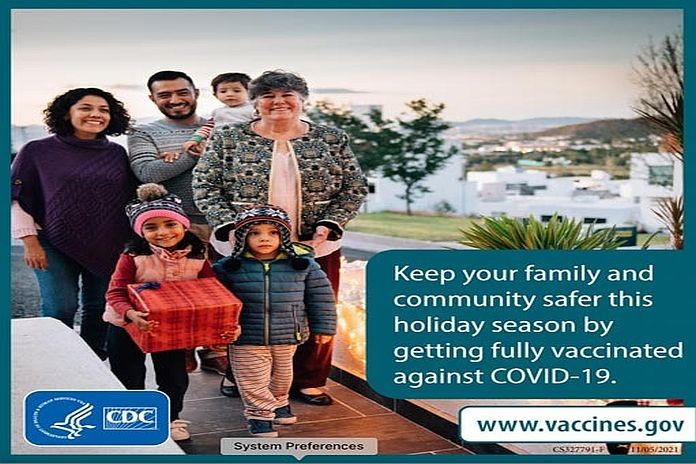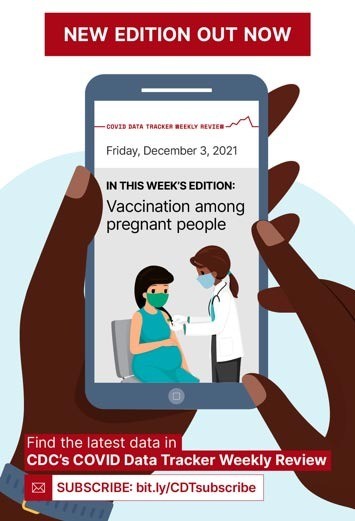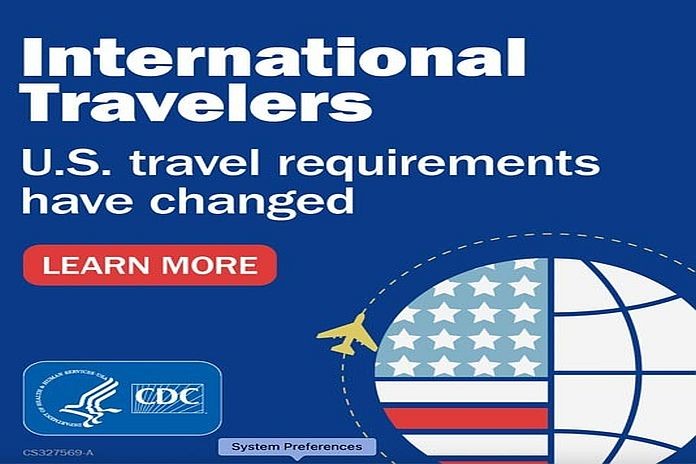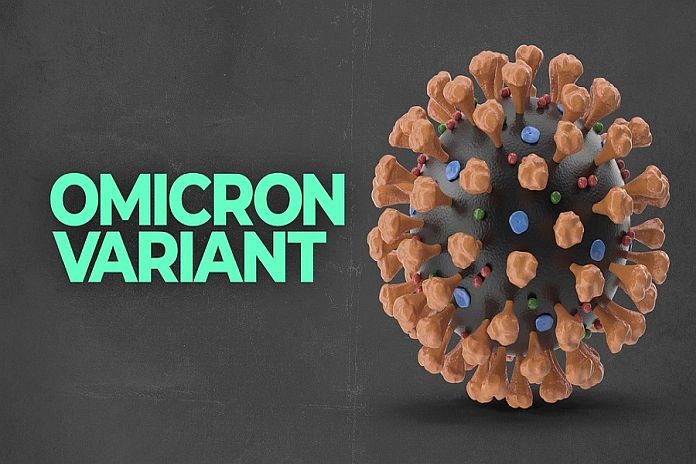ATLANTA, USA, (CDC) – On November 26, 2021, the World Health Organization classified a new COVID-19 variant as a variant of concern and named it Omicron. As of December 4, 2021, Omicron has been identified in the United States and is reported now in more than 20 countries.
CDC has been actively monitoring and preparing for this variant and continues to work diligently with other US and global public health and industry partners to learn more.
The virus that causes COVID-19 is constantly changing, and new variants of the virus are expected to occur. Sometimes new variants emerge and disappear. Other times, new variants persist.
The recent emergence of the Omicron variant further emphasizes the importance of vaccination, boosters, and general prevention strategies needed to protect against COVID-19. Everyone 5 and older should get vaccinated and boosters are recommended for everyone 18 years and older.

Key things to know about COVID-19 vaccines
- Everyone five years and older is eligible to get a free COVID-19 vaccination.
- Everyone ages 18 years and older who is fully vaccinated should get a booster shot.
- COVID-19 vaccines are effective at helping protect against severe disease and death from the virus that causes COVID-19.
- The benefits of COVID-19 vaccination outweigh the known and potential risks, which are rare.
- People who are fully vaccinated can resume many activities they did before the pandemic. However, people should wear a mask indoors in public if they are in an area of substantial or high transmission.

COVID Data Tracker Weekly Review
People who are pregnant or were recently pregnant are at increased risk for severe outcomes from COVID-19, including ICU admission, being on a ventilator, death, and stillbirth. However, COVID-19 vaccination among pregnant people in the United States remains low. CDC recommends people who are pregnant, breastfeeding, trying to get pregnant now, or who might become pregnant in the future get vaccinated against COVID-19.

If you plan to travel internationally, you will need to get a COVID-19 viral test (regardless of vaccination status or citizenship) no more than 1 day before you travel by air into the United States. You must show your negative result to the airline before you board your flight.
CDC tightens testing requirement for international travel to the US to one day
As we learn more about the Omicron variant, this new one-day testing policy will help to protect travelers and the health and safety of American communities from COVID-19.
CDC continues to recommend that all travelers get a COVID-19 viral test 3-5 days after arrival, and that unvaccinated travelers should quarantine for 7 days after travel.
Do NOT travel if:
- You have been exposed to COVID-19, unless you are fully vaccinated or recovered from COVID-19 in the past 90 days.
- You are sick.
- You tested positive for COVID-19 and haven’t ended isolation (even if you are fully vaccinated).
- You are waiting for results of a COVID-19 test.
CDC provides updated US case information online daily. In addition to cases, deaths, and laboratory testing, CDC’s COVID Data Tracker now has a Vaccinations tab to track distribution of COVID-19 vaccines in your state.





